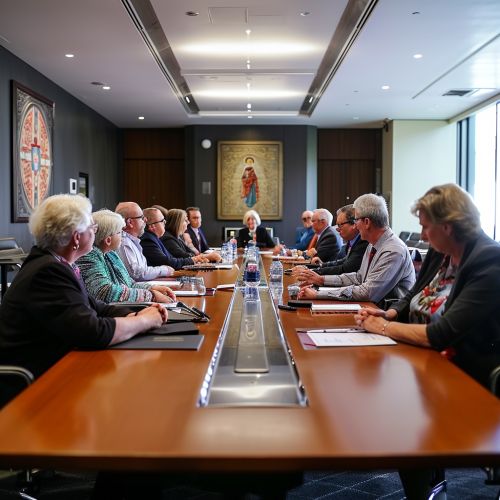Anglican Consultative Council
Overview
The Anglican Consultative Council (ACC) is one of the four "Instruments of Communion" of the Anglican Communion. It was created by a resolution of the 1968 Lambeth Conference. The council, which includes clergy and laity, as well as bishops, meets every two or three years in different parts of the world.


History
The idea for the creation of the ACC came out of the 1968 Lambeth Conference, a decennial assembly of bishops of the Anglican Communion. The resolution that led to the formation of the ACC aimed to provide a means for consultation and co-operation among the churches of the Anglican Communion between the Lambeth Conferences.
Structure and Membership
The ACC is composed of representatives from each of the provinces of the Anglican Communion. Each province sends one bishop, one priest, and one lay person to the council. The Archbishop of Canterbury is an ex-officio member of the council. The ACC also includes representatives from the Anglican religious communities and the Anglican mission agencies.
Function
The ACC has a number of functions within the Anglican Communion. It facilitates the co-operative work of the churches of the Anglican Communion, co-ordinates aspects of international Anglican ecumenical work, and co-ordinates the work of the Anglican Communion Office. The ACC is also responsible for the accreditation of the Anglican Observer to the United Nations.
Meetings
The ACC meets every two or three years. The first meeting of the ACC was held in Limuru, Kenya, in 1971. Since then, meetings have been held in a variety of locations around the world. The most recent meeting, ACC-17, was held in Hong Kong in 2019.
